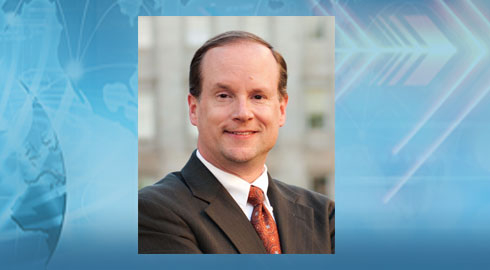Opinion: Put Your Tax Cards On The Table

By John Hood
RALEIGH — The North Carolina House and Senate have enacted very different versions of a 2025-27 state budget, even though two plans would authorize virtually the same amount of spending. The differences are so vast, in fact, that some insiders predict no comprehensive budget will pass this session.
The two sides are far apart on capital projects, pay raises for public employees, policy changes, and other issues. But the fundamental difference involves taxes.
The General Assembly has been reducing and reforming North Carolina taxes since Republicans won their majorities in 2010. Both budget plans continue this approach. But the Senate wants to cut personal-income taxes faster. The House, worried about gloomy revenue forecasts, wants to cut them more gradually.
Senate leaders put the matter more bluntly: the House budget would increase income taxes over the next five years by more than $8 billion.
You see, the two chambers agreed in 2023 to a schedule of tax cuts. Now the House proposes to revise upward the revenue targets that trigger tax-rate reductions. If it gets its way, the state would, indeed, take in more money than the revenue baseline established two years ago. In practical terms, however, North Carolinians wouldn’t experience a tax hike. They’d experience a tax cut, albeit a smaller one than the Senate budget allows.
I know my explanation sounds convoluted. If you’re looking for simplicity, you won’t find it in fiscal policy.
I happen to think House leaders are wise to take the revenue projections seriously. Back in March, I recommended lawmakers revise the tax-cut triggers to account for two factors they couldn’t have predicted in 2023. One is Hurricane Helene. It devastated large swaths of western North Carolina, including infrastructure costing billions of dollars to repair or replace. The other factor is the persistence and magnitude of the post-COVID inflation that the Biden administration worsened with foolish fiscal and regulatory policies. Inflation has significantly reduced the purchasing power of state (and private) revenues.
Defenders of the Senate position (including some John Locke Foundation colleagues, with whom I sing in chorus but not always in unison) argue that the House’s caution is unwarranted, that forecasts produced by legislative- and executive-branch economists tend towards pessimism. There’s some evidence for this — but I see it as more a feature than a bug. Rosy scenarios generally do more damage than stinkweed scenarios.
It’s my turn to be blunt. Some senators believe that even if their new budget provokes a fiscal crisis in a couple of years, that will just give lawmakers an opportunity to do what many favor, anyway: offsetting lost income-tax revenue by legalizing and taxing more gambling operations, or by expanding the sales tax to legal, medical, financial, and other retail services not currently taxed.
It’s an old debate. Back in 2013, some senators favored a plan to rapidly phase out the personal-income tax, offsetting some of the revenue loss by taxing services and imposing new business taxes. The John Locke Foundation offered an alternative, supported by some House members, to turn the personal-income tax into a consumption tax by removing net savings from its tax base.
Both were defensible tax models. Neither garnered sufficient political support. So the General Assembly chose a strategy of gradual reform, based partly on another Locke Foundation model that included revenue triggers to phase in rate cuts over time.
Can such a strategy eventually eliminate the personal-income tax? It depends on what you mean by “eventually.” In 2014, personal-income taxes produced 54% of General Fund tax revenues. In 2024, they made up 52%. Retail-sales taxes accounted for 34%, up from 29% in 2014.
The basic math here is inescapable. If you want to get rid of income taxation, or even just pull the current rate down from today’s 4.25% to the Senate’s envisioned 1.99%, you must either raise other taxes or cut spending drastically. Please put your cards on the table — and explain how they are anything but a losing political hand.
John Hood is a John Locke Foundation board member. His books Mountain Folk, Forest Folk, and Water Folk combine epic fantasy with American history (FolkloreCycle.com).
Discover more from JoCo Report
Subscribe to get the latest posts sent to your email.
2 Comments
Comments are closed.











John Hood’s budget column is misleading and leaves out some important facts.
He blames President Biden for inflation after COVID, saying it was caused by “foolish policies.” That’s just not true. Inflation happened all over the world — not just in the U.S. It was caused by supply chain problems, increased demand after lockdowns, and the war in Ukraine. In fact, under Biden, inflation in the U.S. came down faster than in Europe or the U.K. because his administration worked with the Federal Reserve and passed smart legislation like the Inflation Reduction Act.
What Hood completely ignores is how much Donald Trump contributed to these problems. Trump’s 2017 tax cuts mostly helped the rich and added nearly $2 trillion to the national debt. His trade wars made things more expensive and disrupted supply chains. His poor handling of COVID made the crisis worse — downplaying the virus, attacking science, and refusing to lead on things like testing or protective equipment. And let’s not forget: Trump tried to overturn the election and incited the January 6 riot, which shook trust in our democracy and our economy.
Now let’s talk about taxes in North Carolina. Hood claims the House budget plan would “raise taxes” by $8 billion. That’s false. No one is raising taxes. The House just wants to slow down previously planned tax cuts to avoid budget shortfalls — especially after Hurricane Helene and lower revenue forecasts. That’s called responsible budgeting, not a tax hike.
Meanwhile, the Senate wants to go ahead with big tax cuts that mainly help the wealthy. If those cuts create a budget crisis later, some lawmakers say they’ll just make up the money by legalizing more gambling or taxing things like medical or legal services — which hits regular people the hardest. That’s the real plan: give tax breaks to the rich now, then quietly shift the cost to everyone else later.
John Hood makes it sound like there’s no downside to cutting income taxes, but that’s just not true. If we cut too deeply, we won’t have money for schools, healthcare, disaster relief, or fixing roads. North Carolinians deserve the truth — not spin. If lawmakers want to eliminate income taxes, they should tell us exactly what they’ll cut or what taxes they’ll raise instead.
Until then, these so-called “reforms” are just more trickle-down economics. They’ve never worked before, and they won’t work now.
John Hood back at it again serving the most lukewarm takes